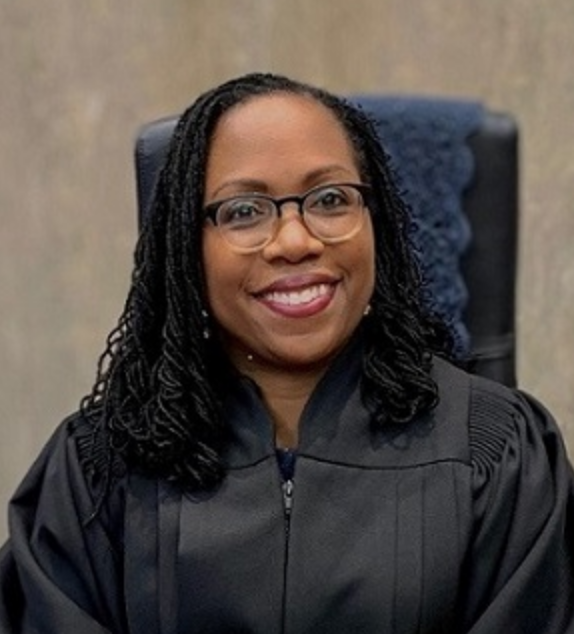Possible SCOTUS nominee saw impact of criminal justice system in uncle's case

U.S. Circuit Judge Ketanji Brown Jackson of the U.S. Court of Appeals for the District of Columbia Circuit. File photo from the U.S. District Court for the District of Columbia.
U.S. Circuit Judge Ketanji Brown Jackson of the U.S. Court of Appeals for the District of Columbia Circuit, often mentioned as a possible U.S. Supreme Court nominee, saw the impact of the criminal defense system partly through the case of an uncle.
The uncle, Thomas Brown Jr., had received a life sentence in 1989 for a nonviolent drug crime under a three-strikes law, report the Washington Post and the New York Times.
Brown had asked Jackson for help in 2005 when she was a federal public defender. Wilmer Cutler Pickering Hale and Dorr represented Brown pro bono after a referral from Jackson; he later received a sentence commutation from then-President Barack Obama, who commuted over 1,700 sentences in all.
Brown was 78 years old when he was released. He died less than a year later.
“Jackson’s brush with her uncle and his prison sentence, which arose out of the nation’s war on drugs, adds to a set of life experiences that would distinguish her from previous justices,” the Washington Post reports.
Brown was the older brother of Jackson’s father, who was a school board attorney. Other members of Jackson’s family had police backgrounds, including a younger brother who worked in undercover drug stings for the Baltimore police, according to the New York Times.
Brown had received 18 months of probation when he pleaded guilty to his first-strike crime: carrying a concealed weapon and possession of heroin, according to the Washington Post. Six years later, in 1982, Brown pleaded guilty to possession of cannabis and was fined $1,500.
Then, after a 1989 arrest, Brown was found guilty of possession of cocaine with intent to sell and conspiracy to commit that offense. Brown received a life sentence because it was his third drug offense.
Jackson, a former clerk for Justice Stephen G. Breyer, became a federal district judge in 2013 and a federal appeals judge in 2021. Before that, she was vice chair of the U.S. Sentencing Commission when it adopted guidelines cutting sentences for many federal drug offenders.
According to the New York Times, as a judge, Jackson “is known more for being detailed and thorough, sometimes to a fault, than for crisp and succinct rulings.” In arguments, she “tends to assert lively command” by displaying her skills as a national oratory champion in high school.
According to the Washington Post, Jackson sentenced more than 100 people to prison as a trial judge. In one case, she imposed a four-year sentence in 2017 on a man who fired a military-style rifle inside a Washington pizzeria, according to the New York Times. The defendant had been deluded by a false conspiracy theory that Hillary Clinton was operating a pedophile ring in the restaurant.



